9, April 2020
WHO fires back after Trump dig about their handling of coronavirus pandemic 0
The head of the World Health Organization gave a strident defence of his agency’s handling of the coronavirus pandemic on Wednesday, in response to U.S. President Donald Trump’s criticism and suggestions that Washington could review its funding for the agency.
WHO Director General Tedros Adhanom Ghebreyesus called for unity and a halt to “politicization” of the global health crisis, specifically urging China and the United States to show “honest leadership”.
Tedros said he expected U.S. funding to continue with traditional bipartisan support.
Trump and his administration repeated its criticism, on Wednesday. Secretary of State Mike Pompeo said Washington was re-evaluating U.S. funding to the body, saying international organizations utilizing U.S. taxpayer money needed to deliver on their goals. But he objected to a leadership change at the WHO at this time.
U.S. contributions to the WHO in 2019 exceeded $400 million, almost double the second-largest country donor, according to U.S. figures. The WHO website shows the United States as its top donor, contributing nearly 15% of the budget.
Trump told the daily White House briefing on the coronavirus that Beijing’s payment was a small fraction of Washington’s WHO contribution, and that was “not fair at all.”
“So, we’re going to do study, investigation. And we’re going to make a determination as to what we’re doing. In the meantime, we’re holding back. We … want to see.”
Trump said the WHO issued a statement on Jan. 14 saying “there was no human-to-human transmission” and criticized him “very strongly” when he said he was going to shut down flights from China.
Tedros said the WHO had “kept the world informed about the latest data, information and evidence” and noted that Thursday would mark 100 days since China first notified the organization of cases of “pneumonia with unknown cause” on Dec. 31.
Tedros, a former foreign minister of Ethiopia, rejected Trump’s suggestion that the WHO was “China-centric”, saying: “We are close to every nation, we are colour-blind.”
Earlier, Dr Bruce Aylward, senior adviser to Tedros, also defended the U.N. agency’s relationship with China, saying its work with Beijing authorities was important to understand the outbreak.
“It was absolutely critical in the early part of this outbreak to have full access to everything possible, to get on the ground and work with the Chinese to understand this,” said Aylward, who led a WHO expert mission to China in February.
In an interview with KDKA Radio, Pompeo said: “I think it’s pretty clear that the World Health Organization hasn’t lived up to its billing, it hasn’t been able to achieve what it was designed to achieve, and we just can’t continue to permit that to go on. We’ve got to find a way.”
Pompeo was asked at the coronavirus briefing whether it was time to change the WHO leadership and replied: “This is not the time to be doing that kind of change.”
‘We make mistakes’
In New York, U.N. Secretary-General Antonio Guterres said on Wednesday now was not the time to assess the global response to the pandemic, calling instead for the international community to focus on working in solidarity to stop the virus.
Tedros said his U.N. agency would conduct its usual assessment of its performance after the emergency and draw lessons about its strengths and weaknesses, adding: “We make mistakes like other human beings.”
He summarised his advice as: “Please, unity at national level, no using COVID for political points. Second, honest solidarity at the global level. And honest leadership from the U.S. and China.”
“The most powerful should lead the way and please quarantine COVID politics,” he added, referring to COVID-19, the highly contagious, sometimes deadly illness caused by the new coronavirus.
Tedros said Beijing and Washington should follow the example of what the former Soviet Union and the United States did in 1967 when they launched a 10-year global campaign that eradicated smallpox, a disease then killing 2 million people annually.
Tedros rejected “racist slurs” against him, which he said had originated in Taiwan, and disclosed that he had also received a death threat during the crisis.
“We are losing people, why would I care about being attacked when people are dying?” he said, noting there were already “60,000 body bags” after more than 1.3 million infections.
“We will have many body bags in front of us if we don’t behave,” he added.
Source: REUTERS
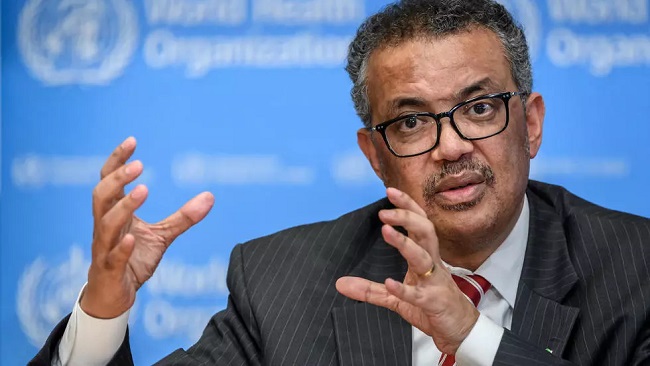
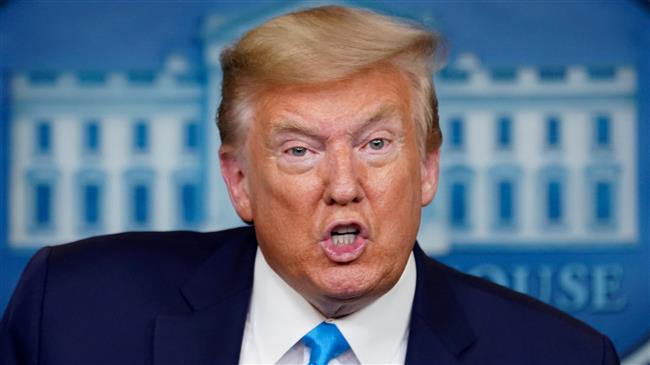
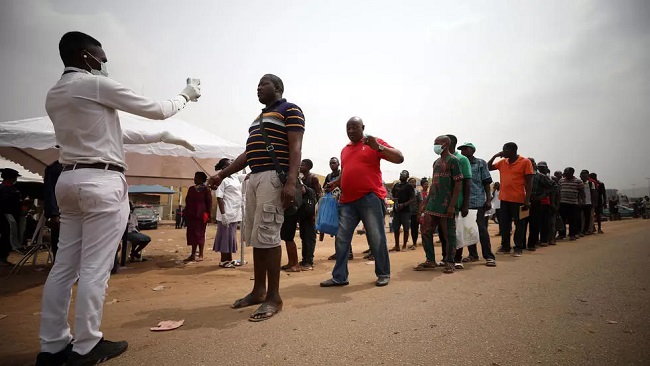


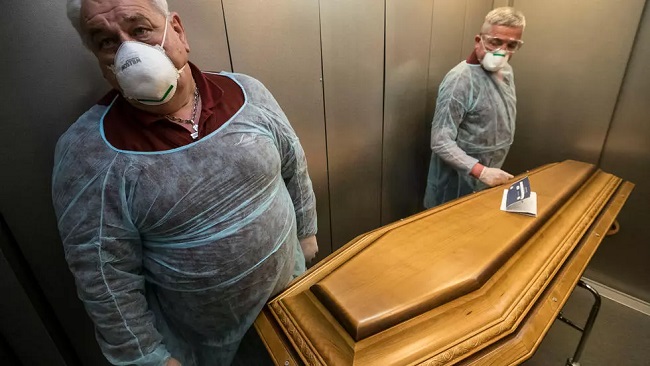
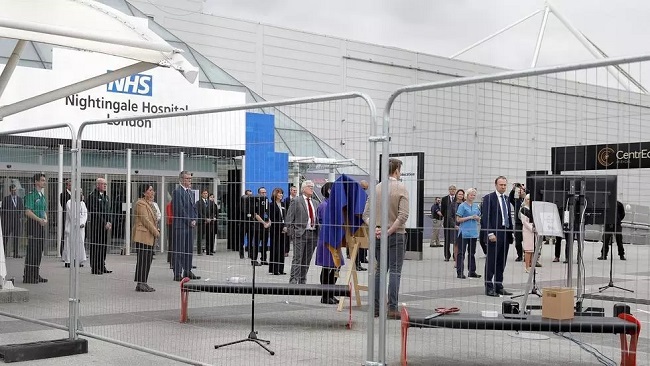

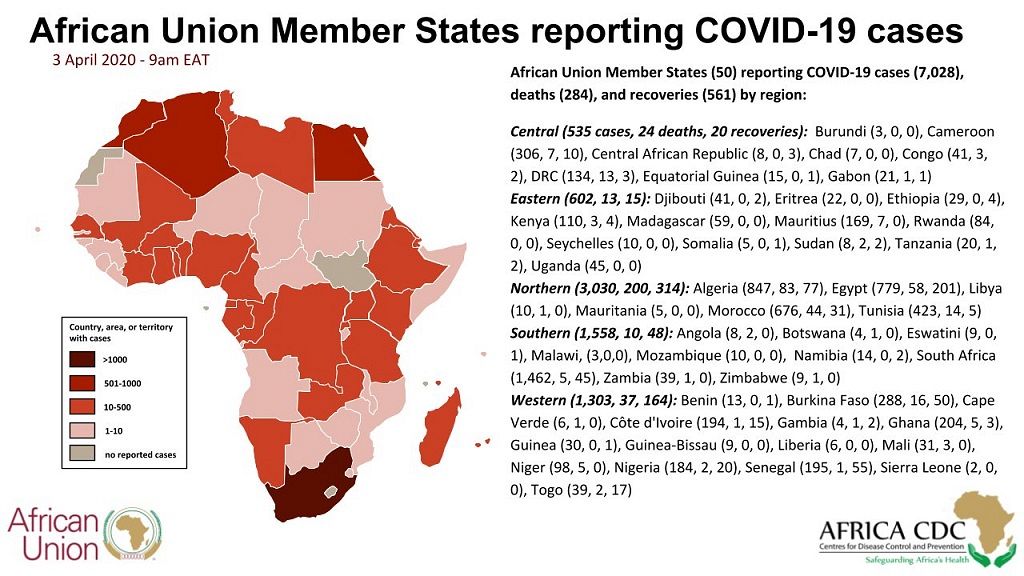

















10, April 2020
Ravaged by war, Southern Cameroons Southern Zone turns attention to Covid-19 fight 0
Covid-19 has had a big impact on Cameroonians around the country, especially those living in the Centre Region, Littoral, West and Southwest regions. In February 2020, when we first heard of Covid-19 virus, many Cameroonians took the pandemic—and our preparedness to fight it—for granted. The government did not immediately plan or announce any measures to tackle the pandemic. As a result, in the Centre Region, it was business as usual, with educational institutions and commercial spaces remaining open.
Meanwhile, the Northwest and Southwest regions were still reeling from the economic and social impact of the ongoing Anglophone crisis, which began in 2017 and has already taken many lives and caused widespread displacement. The onset of Covid-19 has only aggravated the situation in the Northwest and Southwest regions. After a delayed initial response to the Covid-19 crisis, Cameroon has finally put some measures in place to tackle the pandemic.
Impact of government measures
The Cameroonian government has now announced several measures to curtail the spread of Covid-19. These include social distancing, a ban on public gatherings of 50 or more people, a lockdown of all shops and bars after 6 PM everyday, and a restriction on the number of people that can be ferried in a taxi at a time.
Although businesses used to do relatively well in the Southwest region, with people buying and selling things at a low cost, the onset of Covid-19 has impacted the economy and has significantly hit the supply of goods in this area. The price of hand sanitisers, which were not in much demand previously, has skyrocketed. Masks and gloves have also have seen a rise in price, even as their stocks deplete. The government’s decision to close several marketplaces has had a direct impact on the livelihoods of many people. The government has also closed down Cameroon’s borders, halting the trade of some goods as a result. The situation is graver for those who run small shops as they are now unable to meet the basic needs of their families.
Before the Covid-19 pandemic struck, Cameroon maintained a good trade relationship with China. But with the closure of all borders, trade has been hit. Most goods used by Cameroonians are from China, but now there is a stigma attached to Chinese goods due to a lot of misinformation. The Southwest region is experiencing a widespread shortage of products, forcing many to look elsewhere to satisfy their needs. This has made life even more difficult for the less privileged and differently-abled, who are now struggling to access even basic amenities.
Cameroonians have typically neglected health and sanitation issues. Activities such as washing hands, cleaning your surroundings and waste disposal have seldom been followed. Most people did not even know of or how to use hand sanitisers. The healthcare system has also been plagued by malpractice and the incompetence of inadequately trained medical personnel. But with the arrival of Covid-19, there has been some change in personal health and hygiene practices and the functioning of the medical system. The government is working to sensitise Cameroonians around the country on measures to protect themselves against this disease, including issuing communiqués on the proper techinique of on washing your hands with soap.
People comply with advisories
People in the Southwest region have become more aware and alert since the government’s measures to counter the spread of Covid-19 went into action. The government has also set up a dedicated helpline to help people access the right information. News of three alleged cases in the region caused some panic but people have been adhering to the safety and hygiene measures more strictly since then. The cases were later found to be negative, but the people continue to remain cautious and follow the government’s advisories.
Some civil organisations such as Social Change and Establishment Center for Youths and Disabled Persons are teaching people how to make hand sanitisers and face masks themselves since there is a shortage of these product and those that are available are being sold at a high pricer. Even the artistic community is doing its bit to educate people. A musician in the Southwest region has written a song to help inform people about the dangers of the of the Covid-19 virus.
There has been no positive Covid-19 case in the Southwest region as of now, and people are continuing to adhere to the government restrictions and suggestions. However, the shortage of basic goods continues and people are struggling. The government must take into consideration the concerns of the people, especially the differently-abled and less privileged, and must plan to help them meet their basic needs.
Culled from orfonline.org